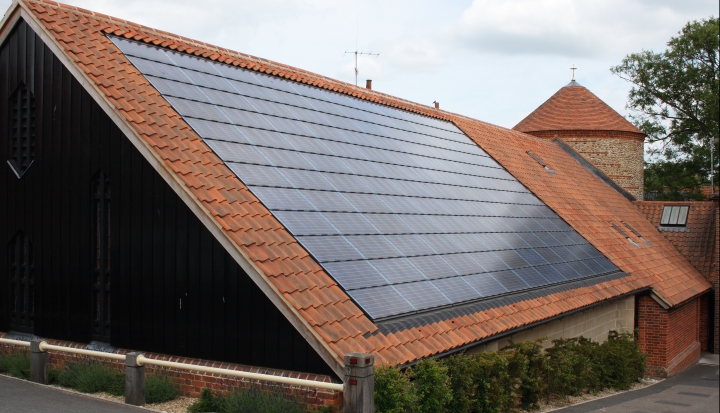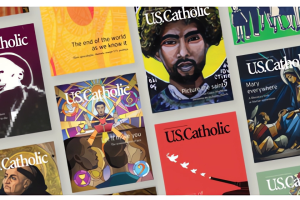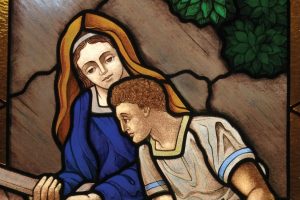In the age of social media, something that dominates news coverage one day can soon slip our collective consciousness as coverage shifts to something new. And even as Pope Francis has brought Catholicism into the digital age, it remains true that the church thinks not in news cycles but in centuries.
This is particularly true of papal encyclicals, profoundly important teaching documents that can take years to percolate into Catholic life. For instance, many Catholics haven’t yet heard about Pope Francis’ recent ecology encyclical, Laudato Si’: On Care for Our Common Home, something those of us working on issues related to climate change and other threats to creation, human life, and human dignity are trying to change.
At the same time, the encyclical has been out less than three months,and much activity in response to Laudato Si’ will take place over the coming months and years. Parish groups will be set up to respond to the challenges Pope Francis describes, lay Catholics will press for more sustainable practices at their schools and workplaces, priests will preach about these issues in their homilies, and bishops will move to enact green policies that reflect our shared concern for God's creation.
In fact, it’s hard to keep up with all that’s in the works. Catholic organizations, communities of women and men religious, parishes, schools, hospital systems, and charitable agencies are already generating programs and activities designed to respond to the challenges posed by the encyclical. We’re seeing Catholics working together across partisan and ideological lines to protect creation. We’re seeing faith leaders from a variety of traditions stand together on climate change. And we’re seeing bishops from across the country respond to Pope Francis’ message not only with dialogue and study, but with actions to ensure that we are living out our values.
Archbishop Dennis Schnurr of Cincinnati recently discussed energy efficiency and pollution reduction efforts in his diocese and the state of Ohio, bringing together businesses, schools, nonprofits, and everyday Catholics to work together for greater sustainability. In Chicago, Archbishop Blase Cupich has committed to ensuring that all of the buildings in the archdiocese are as energy efficient as possible; he’s working with the Environmental Protection Agency to achieve this goal. The bishops of Iowa have put public pressure on presidential candidates to commit to protecting creation, leveraging the key role Iowa has in the presidential primaries. And just recently, Bishop Stephen Blaire of Stockton, California, and Bishop Jaime Soto of Sacramento held an education session on Laudato Si’ for state legislators.
And it’s not just bishops. Catholics around the country are coming together in their parishes and communities to commit to lowering their carbon footprints, making their communities more sustainable, and advocating for policy changes that will protect God’s creation and the poor who suffer most when we don’t live rightly within it.
Pope Francis has made it clear that this will remain a key priority and that we all must work together to address the ecological crisis we face. Recently Christians joined together as part of a “World Day of Prayer for the Care of Creation,” which Catholics will now participate in annually. More and more, care for creation is being integrated into the fabric of the church’s life.
As Pope Francis reminds us, “Humanity still has the ability to work together in building our common home.” Laudato Si’ has started new conversations on ecology and climate change, but it’s more than a conversation-starter. This encyclical is an urgent call to rouse ourselves, to enact God’s love for humanity by protecting the Earth. Catholics are awakening to that call.













